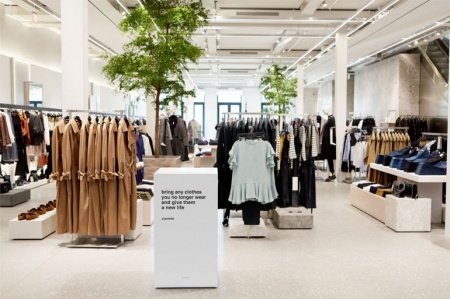How a holistic approach to sustainability can avoid greenwashing

As climate change looms, governments, NGOs and activists have been campaigning for a revolution in sustainability. The demand for climate action has slowly infiltrated the business world as more companies are understanding that prioritising people and planet also benefits profit. A global study revealed consumers are four to six times more likely to purchase, protect and champion purpose-driven companies.
Consumers are demanding a shift in ethical consumption and with this shift, the popularised term “greenwashing” has arisen.
What does greenwashing really mean?
Defining greenwashing can be a grey area. Greenpeace state that “greenwashing is a PR tactic that’s used to make a company or product appear environmentally friendly without meaningfully reducing its environmental impact”.
This is a good foundation for understanding the phenomenon but the definition misses context on two levels:
- Greenwashing goes beyond environmental factors. It can also take the form of social sustainability mirages if a company promises false claims of human rights initiatives and policies.
- Greenwashing isn’t always deliberate or a PR tactic. It is important to explore the accountability of businesses, what they are communicating to the world and how they operate. This is what we are going to begin with here.
Let’s start with a greenwashing example: Fashion

The fashion industry is well known for its contribution to overconsumption, affecting environmental and social issues. The Intergovernmental Panel on Climate Change (IPCC) states that the fashion industry accounts for 10% of global CO2 emissions each year, an estimated use of 1.5 trillion litres of water annually, and rising concerns about the pollution (from chemical waste to microplastics).
Mainstream brands have responded, such as H&M and Zara, by launching “sustainable” lines of clothing. Labelling themselves as sustainable, ethical and eco-conscious raises concerns for two reasons: Firstly, launching a new line dedicated to sustainability simply adds to one of the main issues the fashion industry is accountable for – overconsumption.
A fast-fashion brand asking consumers to go out and buy its sparkly new line of clothing is perpetuating fast fashion, new trends and a throwaway culture which ultimately is damaging to the environment. Secondly, recycled polyester and organic cotton appear to be a sustainable alternative, but the greenwashing here lies in the neglect of human rights issues and social sustainability. These multinational companies are overlooking deep-rooted issues within their complex supply chains of forced labour, low pay, inhospitable working conditions, and child labour.
Can you be accused of greenwashing if you don’t address your entire operation?
The short answer is yes. Unless you are addressing sustainability in all areas of your operations you sit within the term of greenwashing.
This statement isn’t intended to scare companies from making the shift, some effort is always better than no effort. It is here to hold us to account, to remove the pats on the back that aren’t quite deserved and to understand the momentous shift needed to create the impact necessary for a cleaner, brighter future.
To address the global climate crisis, we need businesses to buy into the sustainability agenda. Acting responsibly and sustainably needs to occur across all angles of business operations.
Taking the right action
How can a company take their first sustainability steps if they’re expected to instantly address environmental factors and human rights issues throughout all areas of their operations?
The answer is you can’t – it’s a journey. We need to encourage companies to take that first step towards acting both responsibly and collaboratively. So how does a company do that?
Firstly, it’s about honest communication. We’ve recently seen greater transparency from companies like Edgard and Cooper and Tony’s Chocolonely who actively publish what they are doing, where they are at in the journey, and which areas they aren’t performing well enough in. An apt example was when Tony’s revealed 1,701 child labour incidents within their supply chain in 2021. They looked for problems, took responsibility and are now implementing strategies to work with the families to address and resolve the problem. Other companies might not report on these issues but that does not mean they don’t exist. Ignorance is not bliss, ignorance is harmful. Tony’s source cocoa directly from countries such as Ghana and the Ivory Coast, aware of the modern slavery issues associated, they go where the problems are so that they can contribute to solutions.
Growing public concern about the climate crisis has led to intensified scrutiny and a world calling for honesty and transparency from businesses. After international climate conferences such as G7 and COP26, we have seen a shift in governments moving towards mandatory climate-related disclosure for businesses, and from independent sector bodies calling out greenwashing with fines and industry-relevant legislation on sustainability claims.
Times are changing and there is a strong argument for getting ahead of the curve, making the shift now on your company’s reporting standards will mean you are prepared for what is already an inevitable movement in sustainability governance and policy.
Coupled with honest communications is investing in a holistic strategy. Addressing all areas of sustainability can feel overwhelming but this is where adopting an ESG framework, like B Corp, can help. B Corp isn’t just a certification, it provides a holistic strategy for social and environmental change. It is a useful tool to understand the different impact areas of your business, helping you to identify where your strengths lie and what needs work.
Truly engaging with sustainability and acting as a responsible business stems from holistically addressing the environmental and social negative externalities caused by your company and positively contributing to the planet. Currently, there is no perfect definition of what it means to be a sustainable business, instead, there is just a collection of actions and initiatives that add up to a more responsible form of operating. It’s an ever-evolving journey towards balancing people, planet and profit.
So what are we asking businesses to do?
Let’s look back at our definition of Greenwashing:
It is the deliberate action to cover up or distract from a company’s negative impact, or negligence to understand or record it in the first place.
Look honestly at your company and use it as an indicator of where you sit.
Businesses play a key role in preventing climate disaster and habitat destruction. Consumers (and the planet) are putting sustainability higher on the agenda, prioritising the need for urgency. We all need to start somewhere. To achieve this, companies need to wholeheartedly commit to improvement and sustainability goals, engaging employees in the process. Whilst making these changes, don’t be afraid to communicate them along the way. Share your journey, the good bits and the not so good bits – it turns out consumers are craving the truth! It’s time to hold yourselves accountable, step up and share your sustainability journey with the world. So everyone can learn and work to do better.
At Seismic we’ve helped hundreds of companies with their ESG strategy, using B Corp as a framework to embed social and sustainable practices. We can advise you when and how to communicate this authentically and with honesty, so your actions speak louder than your words.


